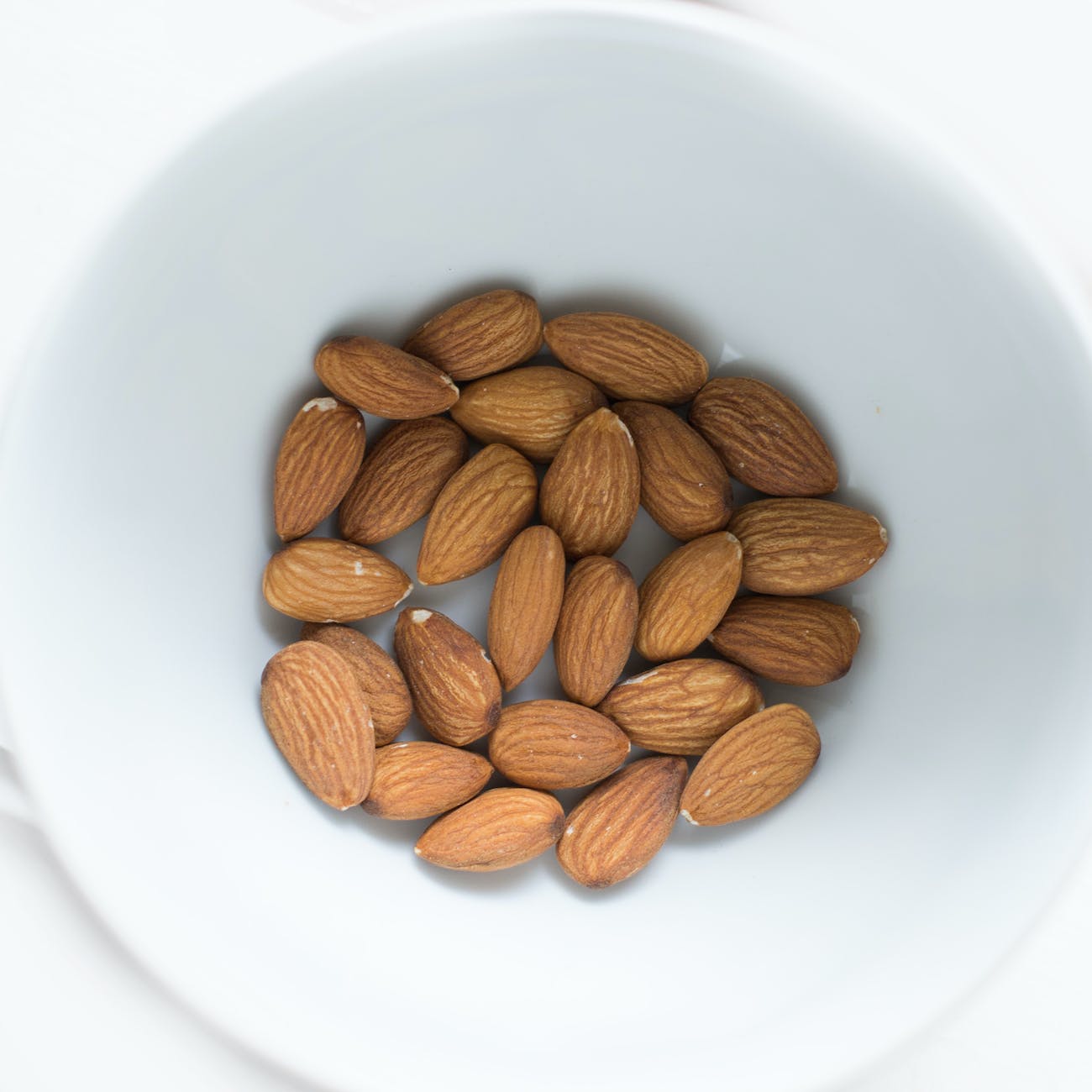
Almond oil, a potent elixir extracted from the kernels of sweet almonds, has been a staple in skincare and haircare routines for centuries. Its rich nutritional profile and therapeutic properties make it a versatile remedy for a myriad of concerns, from skin conditions like psoriasis and eczema to hair health and skin whitening. In this comprehensive guide, we will explore the best almond oils for various uses and how to incorporate them into your daily regimen.
Almond Oil: A Nutritional Powerhouse
Almond oil is packed with essential nutrients that contribute to its therapeutic properties. It is rich in Vitamin E, a potent antioxidant that protects the skin from oxidative stress and premature aging. It also contains fatty acids that nourish and moisturize the skin and hair, and Vitamin A, which can help reduce acne. These nutrients work together to provide a comprehensive solution for various skin and hair concerns, making almond oil a must-have in your beauty regimen.
Almond Oil for Skin Conditions: Psoriasis and Eczema
Almond oil’s anti-inflammatory and emollient properties make it an effective remedy for skin conditions like psoriasis and eczema. It can help soothe inflammation, reduce itching, and moisturize dry, flaky skin. Regular application of almond oil can help manage these conditions, providing relief from discomfort and improving skin health.
Best Almond Oils for Psoriasis and Eczema:
- Organic Sweet Almond Oil: Organic almond oil is free from harmful pesticides and chemicals, making it safe and beneficial for sensitive skin conditions like psoriasis and eczema. It can soothe inflammation, moisturize the skin, and promote healing.
- Cold-Pressed Almond Oil: Cold-pressed almond oil retains its nutritional content, making it more effective in soothing skin inflammation. It is rich in antioxidants and fatty acids that can nourish the skin and promote healing.
Almond Oil for Hair and Skin: A Dual-Purpose Elixir
Almond oil is a versatile oil that can be used for both skin and hair care. It can moisturize the skin, reduce wrinkles, and improve complexion. For hair, almond oil can nourish the scalp, reduce hair fall, and add shine to the hair. Regular use of almond oil can transform your skin and hair, making them healthier and more vibrant.
Best Almond Oils for Hair and Skin:
- Organic Sweet Almond Oil: This oil is rich in nutrients that nourish the skin and hair. It’s ideal for moisturizing the skin and reducing hair fall. It can also improve skin complexion and add shine to the hair.
- Cold-Pressed Almond Oil: Cold-pressed almond oil retains its nutritional content, making it more effective in nourishing the skin and hair. It can moisturize the skin, reduce wrinkles, and strengthen the hair.
Almond Oil for Under Eyes: Say Goodbye to Dark Circles
Almond oil is a natural remedy for dark circles and under-eye bags. Its anti-inflammatory properties can reduce puffiness, while its antioxidant content can lighten the skin under the eyes. Regular application of almond oil can help you achieve a more refreshed and youthful look.
Best Almond Oil for Under Eyes:
- Organic Sweet Almond Oil: This oil is gentle and safe for the delicate skin under the eyes. It can help reduce puffiness and lighten dark circles. It’s also rich in Vitamin E, which can protect the skin from oxidative stress and premature aging.
Almond Oil for Skin Whitening: A Natural Solution
Almond oil can improve skin complexion and promote skin whitening. It can reduce hyperpigmentation and even out skin tone, thanks to its Vitamin E content. Regular use of almond oil can help you achieve a brighter and more radiant complexion.
Best Almond Oil for Skin Whitening:
- Organic Sweet Almond Oil: This oil can help reduce hyperpigmentation and even out skin tone, promoting skin whitening. It’s rich in Vitamin E, which can protect the skin from oxidative stress and promote skin health.
Almond Oil for Face: A Natural Moisturizer
Almond oil is an excellent moisturizer for the face. It can hydrate the skin, reduce wrinkles, and improve skin texture. Regular use of almond oil can help you achieve a smoother and more radiant complexion.
Best Almond Oils for Face:
- Organic Sweet Almond Oil: This oil can deeply moisturize the skin, reduce wrinkles, and improve skin texture. It’s rich in antioxidants and fatty acids that can nourish the skin and promote skin health.
- Cold-Pressed Almond Oil: This oil retains its nutritional content, making it more effective in nourishing the skin. It can hydrate the skin, reduce wrinkles, and improve skin texture.
Almond Oil for Hair: A Natural Conditioner
Almond oil is a natural conditioner that can nourish the scalp, reduce hair fall, and add shine to the hair. Regular use of almond oil can transform your hair, making it healthier and more vibrant.
Best Almond Oils for Hair:
- Organic Sweet Almond Oil: This oil can nourish the scalp, reduce hair fall, and add shine to the hair. It’s rich in fatty acids that can strengthen the hair and promote hair health.
- Cold-Pressed Almond Oil: This oil retains its nutritional content, making it more effective in nourishing the hair. It can strengthen the hair, reduce hair fall, and add shine to the hair.
Frequently Asked Questions
- What makes almond oil good for skin and hair? Almond oil is rich in essential nutrients like Vitamin E, fatty acids, and Vitamin A. These nutrients nourish and moisturize the skin and hair, reduce inflammation, and protect against oxidative stress, making almond oil beneficial for both skin and hair health.
- How does almond oil benefit individuals with psoriasis and eczema? Almond oil’s anti-inflammatory and emollient properties make it an effective remedy for skin conditions like psoriasis and eczema. It can soothe inflammation, reduce itching, and moisturize dry, flaky skin, providing relief and improving skin health.
- Can almond oil help with weight loss? While almond oil itself doesn’t directly contribute to weight loss, it can be a healthy addition to a balanced diet. Almond oil is rich in monounsaturated fats, which can help you feel full and satisfied, potentially aiding in weight management.
- Is almond oil effective for skin whitening? Yes, almond oil can improve skin complexion and promote skin whitening. It can reduce hyperpigmentation and even out skin tone, thanks to its Vitamin E content. Regular use of almond oil can help achieve a brighter and more radiant complexion.
- How can almond oil improve under-eye skin? Almond oil is a natural remedy for dark circles and under-eye bags. Its anti-inflammatory properties can reduce puffiness, while its antioxidant content can lighten the skin under the eyes. Regular application of almond oil can help achieve a more refreshed and youthful look.
- Which is the best almond oil for face wrinkles? Organic sweet almond oil is excellent for reducing face wrinkles. It’s rich in Vitamin E, a potent antioxidant that protects the skin from oxidative stress and premature aging. Regular use of sweet almond oil can help reduce wrinkles and improve skin texture.
- What are the benefits of using almond oil for hair? Almond oil is a natural conditioner that can nourish the scalp, reduce hair fall, and add shine to the hair. It’s rich in fatty acids that can strengthen the hair and promote hair health. Regular use of almond oil can transform your hair, making it healthier and more vibrant.
- Which almond oil is best for skin and hair? Organic sweet almond oil and cold-pressed almond oil are both excellent choices for skin and hair. Organic sweet almond oil is free from harmful pesticides and chemicals, while cold-pressed almond oil retains its nutritional content, making them both effective in nourishing and improving the health of your skin and hair.
- How to use almond oil for maximum benefits? For skin, apply a few drops of almond oil to your face and massage gently in circular motions. For hair, warm the almond oil slightly and massage it into your scalp. Leave it on for about an hour before washing it off with a mild shampoo. Regular use can yield significant improvements in skin and hair health.
Conclusion
Almond oil is a versatile and potent elixir that can address a myriad of skin and hair concerns. Whether you’re dealing with skin conditions like psoriasis and eczema, looking to improve your complexion, or seeking a natural conditioner for your hair, almond oil can be your go-to solution. Remember to choose high-quality almond oils, like organic and cold-pressed versions, to reap the maximum benefits.
Blog Tags
Almond Oil, Skin Care, Hair Care, Psoriasis, Eczema, Skin Whitening, Organic Almond Oil, Sweet Almond Oil, Cold-Pressed Almond Oil, Natural Remedies, Skin Health, Hair Health.












